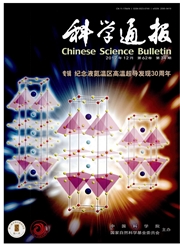

 中文摘要:
中文摘要:
大部分离子液体如果直接暴露在空气中都能吸收一些水分,而水会对离子液体的微观结构、物理化学性质等产生一定程度的影响,从而进一步影响离子液体的应用,因此有必要对离子液体的吸湿性开展系统深入的研究.本文评述了离子液体吸湿性研究领域的最新进展.通过对50多种离子液体的吸湿性的分析,总结了离子液体的结构因素和温度、湿度等外部因素对其吸湿性的影响,并对文献中提出的两步吸收机理和3类用于表征吸收过程参数进行了讨论,评述了基于实验数据的离子液体吸湿性分类标度.另外,离子液体的宏观吸湿性取决于其和水分子间的微观相互作用,关于这方面的研究已经比较多,本文简单综述了离子液体和水的分子间相互作用,和根据离子液体的氢键酸性和氢键碱性等参数预测离子液体吸水性的方法.随后,讨论了用二维相关光谱技术研究离子液体的吸湿过程的进展,认为该过程可以分成几个阶段,分别受不同的分子间作用力控制.根据相律,憎水性离子液体的水溶液可以用来调节相对湿度,而且鉴于醋酸根离子液体具有强的吸水性,一定条件下可以作为吸水剂来使用.
 英文摘要:
英文摘要:
Most ionic liquids can absorb some water when exposed to air. Water has a certain degree of influence on the microstructure and physio-chemical properties of ionic liquids, and further affecting the application of ionic liquids, thus it is necessary to carry out compenhensive study on the hygroscopy of ionic liquids. We reviewed the recent progress on this topic. Based on the hydrogency of more than 50 kinds of ionic liquids we reviewed the effects of structure factor of ionic liquids and external factors such as temperature and humidity. Also mechanism of sorption as well as three kinds of parameters derived for characterization the absorption process were reviewed. The hygroscopy of ionic liquids was proposed to classify into four levels. For a deeper understanding of the sorption of ionic liquids, we further reviewed the intermolecular interactions of ionic liquids and water, and the method for predicting the sorption ability of ionic liquids according to the solvochromatic parameters of ionic liquids. Then, we used two-dimensional correlation spectroscopy to study the dynamical process of water sorption of ionic liquids and discoved theat the sorption process can be divided into several stages by the intermolecular forces. Finally, according to phase law, we proposed to adjust the relative humidity with two phases systems of hydrophobic ionic liquid with water. Since acetate ion liquid has strong water sorption ability, it can be used as the absorbent under certain conditions.
 同期刊论文项目
同期刊论文项目
 同项目期刊论文
同项目期刊论文
 Quantitative Research on the Vaporization and Decomposition of [EMIM][Tf2N] by Thermogravimetric Ana
Quantitative Research on the Vaporization and Decomposition of [EMIM][Tf2N] by Thermogravimetric Ana Hydrogen Bonding Interaction Between Acetate-based Ionic Liquid and Water: thee types of IR absorpti
Hydrogen Bonding Interaction Between Acetate-based Ionic Liquid and Water: thee types of IR absorpti Quantitative investigation on the physical and chemical interactions between CO2 and amine-functiona
Quantitative investigation on the physical and chemical interactions between CO2 and amine-functiona New criteria combined of efficiency, greenness, and economy for screening ionic liquids for CO2 capt
New criteria combined of efficiency, greenness, and economy for screening ionic liquids for CO2 capt Quantifying the hydrogen-bonding interaction between cation and anion of pure [EMIM][Ac] and evidenc
Quantifying the hydrogen-bonding interaction between cation and anion of pure [EMIM][Ac] and evidenc Investigations on the thermal stability and decomposition mechanism of an amine-functionalized ionic
Investigations on the thermal stability and decomposition mechanism of an amine-functionalized ionic The Dynamic Process of Atmospheric Water Sorption in [BMIN][Ac]: Quantifying Bulk versus Surface Sor
The Dynamic Process of Atmospheric Water Sorption in [BMIN][Ac]: Quantifying Bulk versus Surface Sor Water Sorption in Amino Acid Ionic Liquids: Kinetic, Mechanism, and Correlations between Hygroscopic
Water Sorption in Amino Acid Ionic Liquids: Kinetic, Mechanism, and Correlations between Hygroscopic Investigation of ionic liquids for efficient removal and reliable storage of radioactive iodine: a h
Investigation of ionic liquids for efficient removal and reliable storage of radioactive iodine: a h The Dynamic Process of Atmospheric Water Sorption in [EMIM][Ac] and Mixtures of [EMIM][Ac] with Biop
The Dynamic Process of Atmospheric Water Sorption in [EMIM][Ac] and Mixtures of [EMIM][Ac] with Biop Quantification of Ionic Liquids Concentration in Water and Qualification of Conjugated and Inductive
Quantification of Ionic Liquids Concentration in Water and Qualification of Conjugated and Inductive Water sorption in amino-acid ionic liquids: kinetic, mechanism, and correlations between hygroscopic
Water sorption in amino-acid ionic liquids: kinetic, mechanism, and correlations between hygroscopic Determination of Absorption Rate and Capacity of CO(2) in Ionic Liquids at Atmospheric Pressure by T
Determination of Absorption Rate and Capacity of CO(2) in Ionic Liquids at Atmospheric Pressure by T The dynamic process of radioactive iodine removal by ionic liquid 1-butyl-3-methyl-imidazolium aceta
The dynamic process of radioactive iodine removal by ionic liquid 1-butyl-3-methyl-imidazolium aceta Comparison of the a Priori COSMO-RS Models and Group Contribution Methods: Original UNIFAC, Modified
Comparison of the a Priori COSMO-RS Models and Group Contribution Methods: Original UNIFAC, Modified Theoretical investigations on the reaction mechanisms of amine-functionalized ionic liquid [aEMMIM][
Theoretical investigations on the reaction mechanisms of amine-functionalized ionic liquid [aEMMIM][ Hydrogen bonding between acetate-based ionic liquids and water: Three types of IR absorption peaks a
Hydrogen bonding between acetate-based ionic liquids and water: Three types of IR absorption peaks a Comprehensive Investigation on the Thermal Stability of 66 Ionic Liquids by Thermogravimetric Analys
Comprehensive Investigation on the Thermal Stability of 66 Ionic Liquids by Thermogravimetric Analys Evolutional mechanism of 1-ethyl-3-methyl-imdazolium acetate uptaking water from air detected with a
Evolutional mechanism of 1-ethyl-3-methyl-imdazolium acetate uptaking water from air detected with a A New Way to Interpret Perturbation-Correlation Moving-Window Two-Dimensional Correlation Spectrosco
A New Way to Interpret Perturbation-Correlation Moving-Window Two-Dimensional Correlation Spectrosco The dissolution behaviour of chitosan in acetate-based ionic liquids and their interactions: from ex
The dissolution behaviour of chitosan in acetate-based ionic liquids and their interactions: from ex 期刊信息
期刊信息
